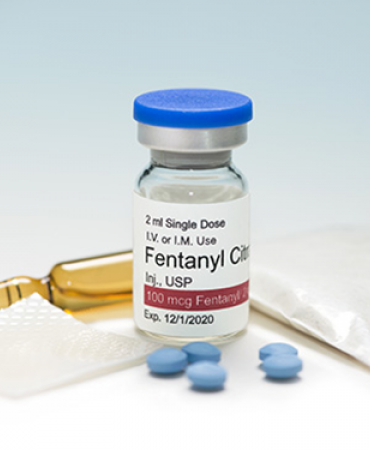The Metro Public Health Department (MPHD) of Nashville/Davidson County is monitoring an increase of fatal drug overdoses involving fentanyl that have occurred in the county in 2019. As of early October, fentanyl-related drug overdose deaths have met the total number of fentanyl-related drug overdose deaths reported in 2018. Since 2016, fentanyl has become increasingly identified in drug overdose deaths in Davidson County.
MPHD wants to ensure that partner agencies, community stakeholders, and the public are aware of this increase. Currently, MPHD will continue to monitor, investigate, and respond to emerging trends regarding the drug overdose epidemic in Nashville/Davidson County.
Fentanyl is a synthetic, short-acting opioid analgesic and is 50-100 times more potent than morphine. The presence of fentanyl in any illicit drug increases the risk of overdose. It is also sold via illicit drug markets for its heroin-like effect and often mixed with heroin and/or cocaine—with or without the user’s knowledge—to increase its euphoric effects. While fentanyl-related overdoses can be reversed with naloxone, a higher dose or multiple doses per overdose event may be required to revive a patient due to the high potency of fentanyl.
Resources for the Public
Tennessee REDLINE
- The purpose of the Tennessee REDLINE is to provide accurate, up-to-date alcohol, drug, problem gambling, and other addiction information and referrals to all citizens of Tennessee at their request.
- Phone: 1-800-889-9789 (toll free 24 hours/7 days)
Naloxone Training
- Information regarding Naloxone training and free Naloxone kits (when available) can be found on the Nashville Prevention Partnership website:
- In Tennessee, the Good Samaritan Law grants civil immunity for individuals administering Naloxone to someone they reasonably believe is overdosing on an opioid.
Overdose Signs
- Person is not responsive
- Fingertips or lips turn blue or grey
- Breathing is slow, shallow, or has stopped
- Person is gurgling or making snoring noises
What can you do if you see an opioid overdose?
- Call 911
- If you have naloxone, give the person naloxone and perform rescue breathing
- If no response after 2-3 minutes, give a second dose of naloxone
- Do not leave the person alone (help will arrive)
If the person starts to breathe or becomes more alert, lay the person in the recovery position: put the person slightly on the left side so that their body is supported by a bent knee with their face turned to the side and bottom arm reaching out to stabilize the position.

